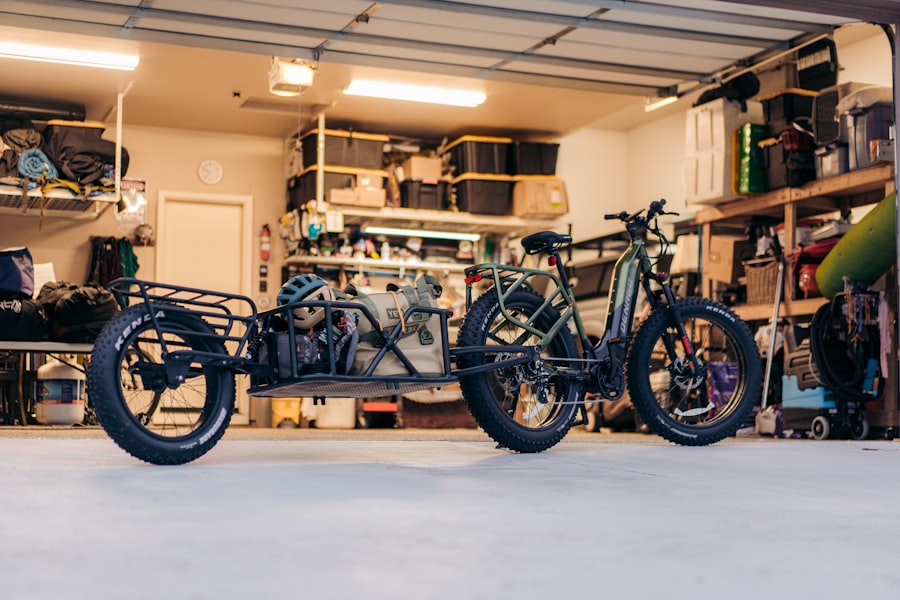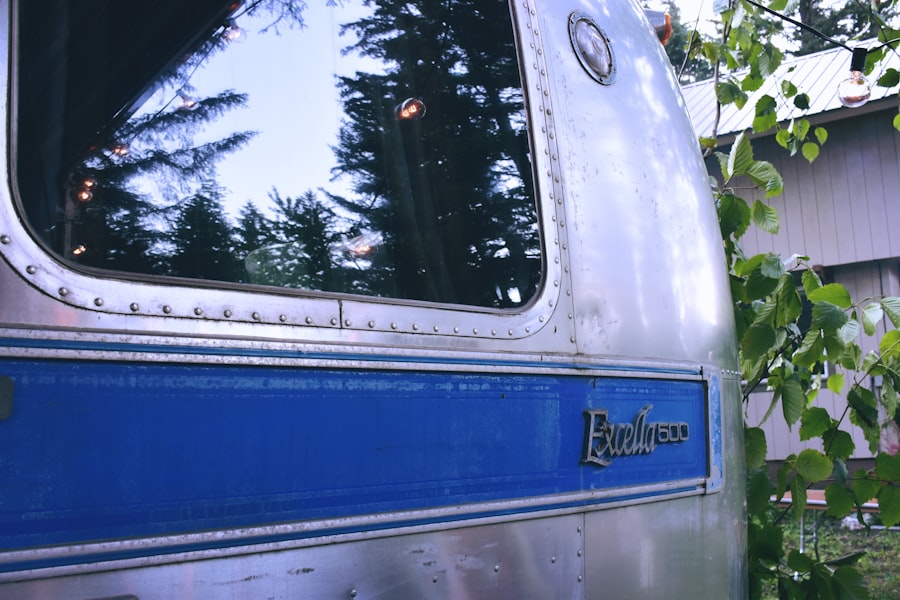A trailer home, often referred to as a mobile home or manufactured home, is a type of prefabricated housing that is built in a factory and then transported to a designated site. Unlike traditional homes that are constructed on-site, trailer homes are designed to be movable, allowing for flexibility in location. They come in various sizes and layouts, ranging from single-section units to larger multi-section models.
The construction of these homes adheres to specific federal standards set by the U.S. Department of Housing and Urban Development (HUD), which ensures safety and quality. The design of trailer homes has evolved significantly over the years.
Initially, they were often viewed as temporary housing solutions or low-cost alternatives to traditional homes. However, modern trailer homes boast a range of amenities and can be quite spacious, featuring open floor plans, modern kitchens, and energy-efficient appliances. Many are equipped with features such as central heating and air conditioning, making them comfortable year-round.
The aesthetic appeal has also improved, with options for exterior finishes that mimic traditional homes, including siding materials and roofing styles that enhance their visual appeal.
Key Takeaways
- Trailer homes are mobile residences offering affordable and flexible living options.
- Benefits include lower costs, mobility, and simplified maintenance compared to traditional homes.
- Finding the right trailer home involves assessing size, features, and location preferences.
- Financing options range from personal loans to specialized mobile home loans.
- Regular maintenance and understanding community rules are essential for comfortable trailer home living.
The Benefits of Buying a Trailer Home
One of the most significant advantages of purchasing a trailer home is affordability. Compared to traditional houses, trailer homes typically come at a lower price point, making homeownership accessible to a broader range of individuals and families. This affordability extends beyond the initial purchase price; trailer homes often incur lower property taxes and utility costs, contributing to long-term financial savings.
For first-time buyers or those looking to downsize, this can be an attractive option. Another benefit is the flexibility that trailer homes offer. Many buyers appreciate the ability to relocate their home if necessary, whether due to job changes, family needs, or personal preferences.
This mobility can be particularly appealing for those who enjoy traveling or wish to explore different regions without the commitment of a permanent residence. Additionally, many trailer parks provide a sense of community and shared amenities, such as recreational facilities and social events, fostering connections among residents.
Finding the Right Trailer Home for You

When searching for the ideal trailer home, it is essential to consider various factors that align with your lifestyle and needs. Start by determining your budget, which will guide your options in terms of size, features, and location. It’s crucial to assess not only the purchase price but also ongoing costs such as insurance, maintenance, and utilities.
Once you have a budget in mind, you can explore different models and layouts that fit your requirements. Location is another critical aspect when selecting a trailer home. Some buyers prefer the convenience of living in a trailer park with established amenities and community support, while others may seek private land for greater independence.
Researching local zoning laws and regulations is vital, as these can impact where you can place your trailer home. Additionally, consider proximity to schools, workplaces, healthcare facilities, and recreational areas to ensure that your new home meets your lifestyle needs.
Financing Options for Trailer Homes
| Financing Option | Typical Interest Rate | Loan Term | Down Payment | Eligibility Requirements | Notes |
|---|---|---|---|---|---|
| Personal Loan | 6% – 36% | 1 – 7 years | None | Good credit score, steady income | Unsecured loan, higher interest rates |
| Chattel Loan | 5% – 12% | 5 – 20 years | 10% – 20% | Credit check, proof of income | Loan for movable personal property |
| FHA Title I Loan | Variable, typically low | Up to 20 years | None or low | Must meet FHA guidelines | Government-backed, for home and lot |
| Home Equity Loan | 3% – 8% | 5 – 30 years | Equity in existing home | Homeowner with equity | Secured by existing property |
| Manufacturer or Dealer Financing | 4% – 15% | 1 – 10 years | Varies | Credit approval required | May include promotional rates |
Financing a trailer home can differ significantly from traditional home loans due to its classification as personal property rather than real estate in some cases. Many lenders offer specific loans tailored for manufactured homes, which may include options like chattel loans or FHA loans designed for mobile homes. Chattel loans are secured by the home itself rather than the land it sits on, making them suitable for buyers who plan to place their trailer in a park or on rented land.
For those looking to purchase land along with their trailer home, conventional mortgage options may be available. These loans typically require a larger down payment and may involve stricter credit requirements. It’s essential to shop around and compare interest rates and terms from various lenders to find the best financing solution for your situation.
Additionally, some manufacturers offer in-house financing options that can simplify the purchasing process.
Maintenance and Upkeep of Trailer Homes
Maintaining a trailer home requires attention to detail and regular upkeep to ensure its longevity and comfort. One of the primary considerations is the exterior maintenance, which includes inspecting the roof for leaks, checking the siding for damage, and ensuring that windows and doors are properly sealed. Regular cleaning and maintenance can prevent more significant issues down the line, such as water damage or pest infestations.
Interior maintenance is equally important. Homeowners should routinely check plumbing systems for leaks, inspect electrical systems for safety hazards, and maintain heating and cooling systems for optimal performance. Many modern trailer homes come equipped with energy-efficient appliances that require less maintenance than older models; however, regular servicing is still necessary to keep everything running smoothly.
Establishing a seasonal maintenance checklist can help homeowners stay organized and proactive in caring for their trailer home.
Community Living in Trailer Parks

Living in a trailer park offers unique advantages that can enhance the overall experience of homeownership. Many parks foster a strong sense of community among residents, providing opportunities for social interaction through organized events such as potlucks, game nights, or holiday celebrations. This communal atmosphere can be particularly beneficial for individuals or families new to an area who are looking to make connections.
Moreover, trailer parks often provide shared amenities that enhance residents’ quality of life. These may include swimming pools, playgrounds, clubhouses, and fitness centers. Such facilities not only promote an active lifestyle but also create spaces where neighbors can gather and build relationships.
Additionally, many parks have on-site management that can assist with maintenance issues or community concerns, further contributing to a supportive living environment.
Customizing Your Trailer Home
One of the appealing aspects of owning a trailer home is the potential for customization. Homeowners can personalize their space to reflect their tastes and preferences through various modifications and upgrades. From choosing paint colors and flooring materials to adding outdoor decks or landscaping features, there are numerous ways to make a trailer home uniquely yours.
Interior customization options are also abundant. Many homeowners opt to upgrade kitchens with modern appliances or redesign bathrooms for improved functionality and aesthetics. Some may choose to create open-concept living spaces by removing non-load-bearing walls or adding built-in storage solutions to maximize space efficiency.
The flexibility in design allows residents to create an environment that suits their lifestyle while enhancing comfort and enjoyment.
Considerations Before Buying a Trailer Home
Before committing to the purchase of a trailer home, several critical considerations should be taken into account. First and foremost is understanding local zoning laws and regulations regarding mobile homes in your desired area. Some regions have restrictions on where trailer homes can be placed or may require specific permits for installation.
Familiarizing yourself with these regulations can prevent future complications. Another important factor is assessing the long-term viability of living in a trailer home. While they offer affordability and flexibility, potential buyers should consider their future plans regarding family size, job stability, and lifestyle changes.
It’s also wise to evaluate the resale value of the home; some models may depreciate faster than others based on market demand or location trends. Conducting thorough research and seeking advice from real estate professionals can help ensure that you make an informed decision that aligns with your long-term goals.



